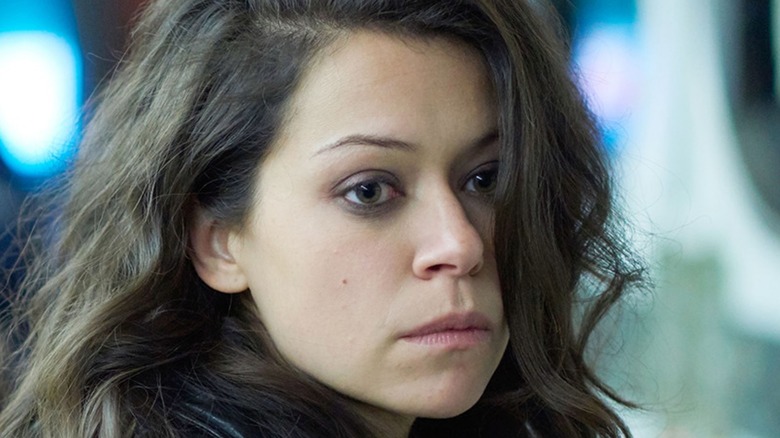
Even before television had the technology to do justice to the ambitious, creative stories that would capture the imagination of audiences throughout the 20th century, science fiction had long been one of the most popular genres on the small screen. By taking a close look at a strange new world, we are often able to better understand our own. And in the case of early television, using science fiction was a way to address socio-political issues without running afoul of censorship efforts ("We're not talking about Vietnam, this is an alien war on another planet, we swear!").
As one of the largest streaming services currently available, Amazon Prime has a substantial library of science fiction titles. They range from some of the shows from the mid-20th century that would go on to define the genre to original series that Amazon has helped to develop themselves, and are often spectacles with massive budgets exploring time and space ... all of which will likely be watched on a laptop or cell phone. Still, if you're an Amazon Prime subscriber looking for a sci-fi show to binge, these are your best bets.
Upload
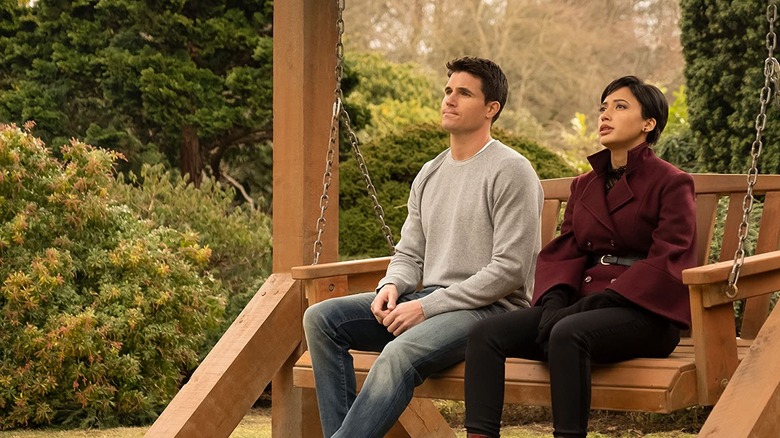
While most views of the afterlife tend to address spirituality, ethics, and philosophy, "Upload" takes a decidedly more modern, technologically motivated approach to the eternal question. It takes the guesswork out of life after death by putting the matter into the hands of the individual, who uploads their consciousness into a pre-selected virtual afterlife. When a young computer programmer (Robbie Amell) finds himself experiencing an untimely death, he ends up in Lakeview, a perfectly lovely place to spend eternity. But he can't quite leave his old life behind; there are lingering questions about the manner of his death, and even whispers that he was murdered.
There's a natural comparison to be drawn between this and "The Good Place," as they're both intelligent comedies that offer a quirky glimpse of life beyond the veil, but "Upload" is a pleasant surprise in how much it manages to be its own creature, never feeling unduly influenced by Mike Schur's juggernaut afterlife comedy.
Counterpart
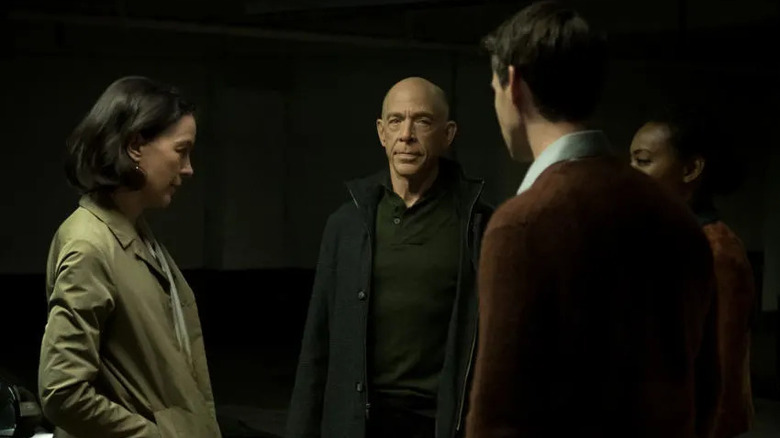
It has two J.K. Simmons in it, okay? What, like it's not going to be good? Please.
"Counterpart" has the tonal affectation of a traditional spy drama, with Simmons playing a quiet, mild-mannered, middle-management bureaucrat at a Berlin-based U.N. agency. The only thing that clues you in to the fact that this is science fiction and not a good old-fashioned Cold War period piece is the fact that this organization is tasked with monitoring the bridge between two worlds: the original Alpha universe and its Prime variant.
At the point that the worlds become known to one another, they are much the same. But as time goes on, one is plagued by a virulent pandemic that decimates its population, and they accuse the other of purposefully releasing the virus, creating a deeply tense, suspicious Cold War scenario all their own. Layered, socially relevant, and anchored by a strong leading performance from Simmons, "Counterpart" is one of the most interesting shows on Amazon Prime.
Philip K. Dick's Electric Dreams
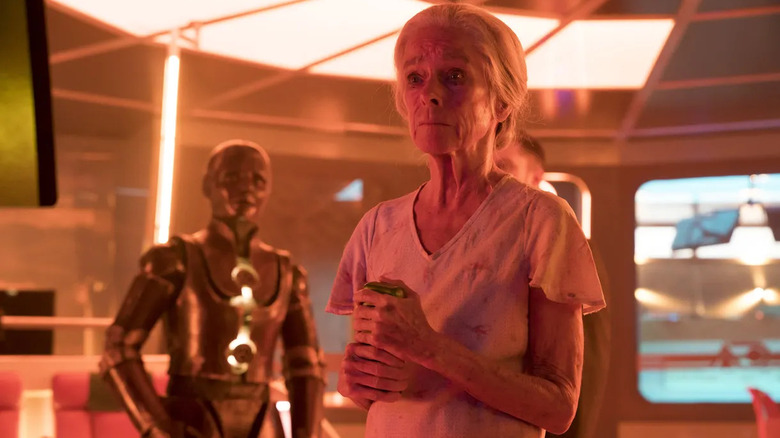
Based on a series of short stories by Philip K. Dick, "Electric Dreams" is a science fiction anthology series that offers different views of various potential futures. Although it was clearly made by Amazon Prime in an effort to capitalize on the success of "Black Mirror," there are enough dissimilar elements to prevent it from feeling like a total rip-off. (It also helps that the stories featured in "Electric Dreams" were written in the early to mid-1950s, so they can hardly be accused of plagiarism!)
The episodes vary in tone, but for the most part they represent a more fanciful vision of the future than the near-constant cynicism of something like "Black Mirror." It brings to life a wide spectrum of emotions, rather than focusing on fear and horror. And although "Electric Dreams" sometimes struggles with consistency, with some of its episodes several orders of magnitude more interesting than others, for the most part it's a dreamy, atmospheric exploration of both the possibilities of the future and what we stand to lose in the process.
Tales From The Loop
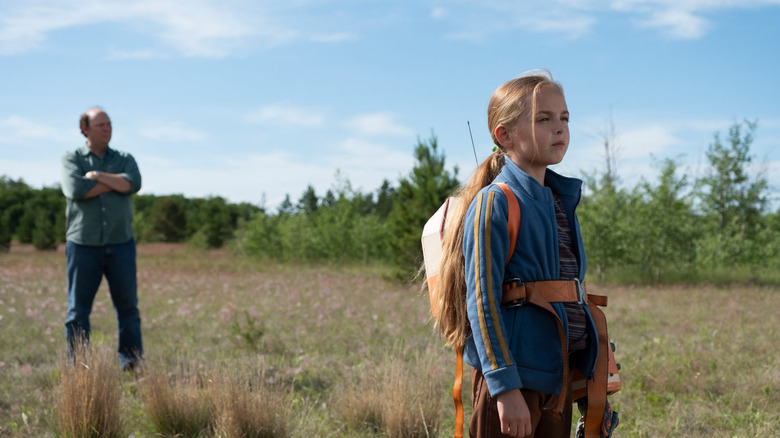
Science fiction doesn't have to be all spaceships, aliens, dystopian futures, and angry robots bent on world domination. "Tales from the Loop" represents a gentler side of the genre, centering around a town where strange things just seem to happen. People accidentally slip through time. Kids are somehow able to swap bodies. Chaos reigns. It's all thanks to the presence of the mysterious Mercer Center for Experimental Physics, where scientists work to defy the laws of the universe.
Based on an art book from Swedish artist Simon Stålenhag, "Tales from the Loop" was built from truly magnetic imagery that delicately blends science fiction with an almost nostalgic small-town atmosphere. It uses genre elements to explore universal human emotions, and although its languid pace may turn off some viewers, for those who are willing to stick with it the cumulative effect is utterly beguiling.
The Expanse
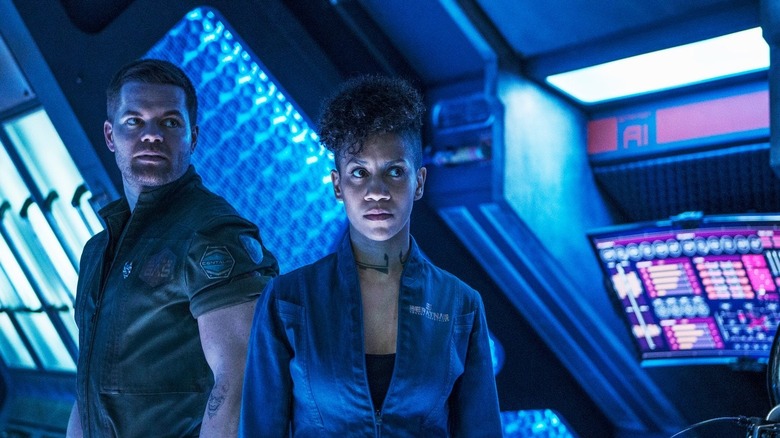
"The Expanse," like many high-pedigree science fiction series, has survived over the years only by luck. After three seasons on Syfy, it was unceremoniously canceled, only to be resurrected by Amazon Prime thanks to a massive campaign from fans of the show. And although the show's 6th and final season airs in December 2021, it deserves the extra episodes it managed to eke out. "The Expanse" is set in a future where humanity is spread across the solar system, and the planets exist in a state of perpetual suspicion of one another.
Our intrepid group of heroes (led by, amongst others, Steven Strait, who you may recognize as Warren Peace from "Sky High") find themselves caught in the middle of an intense political battle that threatens to upend the fragile peace of the solar system. The greatest success of "The Expanse" is how expertly it grounds the interplanetary drama in reality, developing genuine stakes for all the characters.
Star Trek: Deep Space Nine
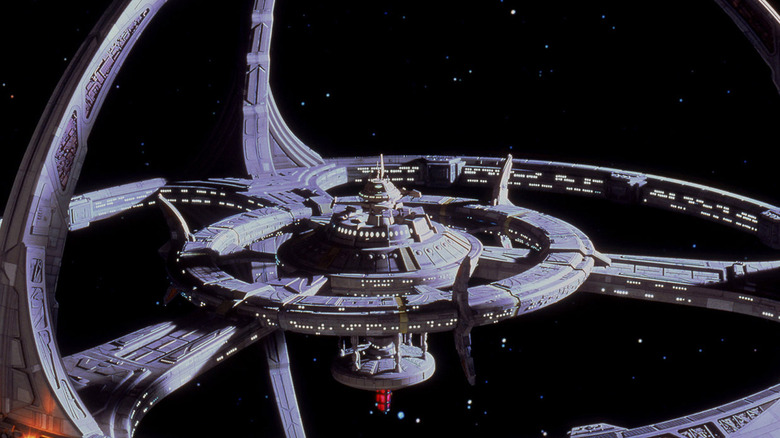
The third in an ever-expanding series of Star Trek properties, "Star Trek: Deep Space Nine" ran for an impressive seven seasons and has long been ranked highly by fans of the interstellar franchise. It deviates from the first two Star Trek series in two fundamental aspects. "Deep Space Nine" was the first to be made without the direct involvement of legendary creator Gene Roddenberry, and it was the first to take place on a space station rather than a ship traversing the galaxy.
It focused primarily on the conflict between the Cardassians and the Bajorans, with the United Federation of Planets stepping into a peacekeeping role, but in later seasons they would incorporate adventures that would take them further afield. "Deep Space Nine" earned praise from critics both for its efforts to highlight POC actors in key roles, and its rich, emotionally nuanced narratives which has given it a staying power that goes beyond some of the other Star Trek spinoffs.
Farscape
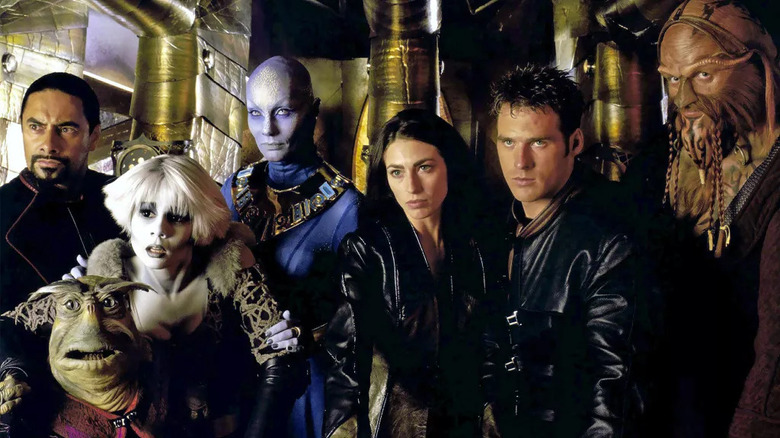
The entire concept of "Farscape" seems to run counter to Star Trek's approach to space opera. Unlike Star Trek, the characters of "Farscape" aren't part of any noble, intergalactic NGO; in fact, most of them are on the run from the ominously named Peacekeepers, whose beneficent origins have long since been corrupted. The "Farscape" crew are driven less by Starfleet-like ideological motives than the desire to simply return home safely.
The story begins when a modern-day astronaut, John Crichton (Ben Browder), is transported through a wormhole to the opposite end of the universe, where he quickly runs afoul of the aforementioned Peacekeepers. Together with a ragtag group of misfits (some of which are Jim Henson creations, which is delightful) on a living spaceship, he desperately tries to find a way back to Earth, an effort that will end up spiraling out of control as wormhole technology becomes coveted as part of an outer space arms race.
The Man In The High Castle
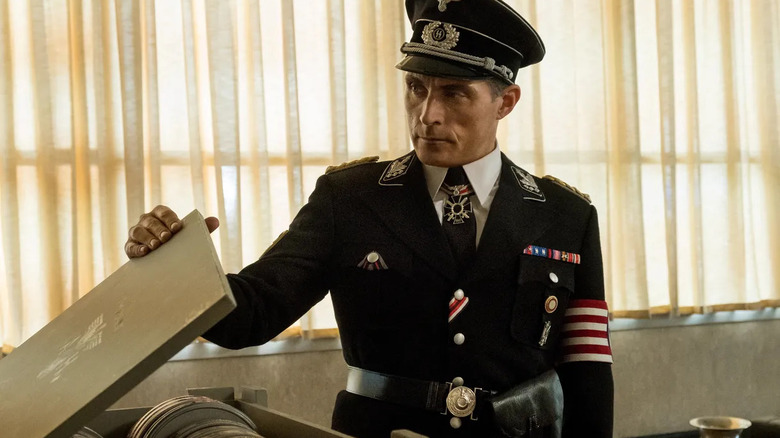
Although "The Man in the High Castle" is gripping from the very beginning, it definitely buries the lede in terms of its status as a science fiction piece. Initially, it's presented as a sort of high-octane, deeply depressing thought experiment about what American society would look like in the 1960s had Germany and Japan won World War II. It's only later in the series that it really starts to address the logistical implications of the legend of the Man in the High Castle, i.e., the existence of a multiverse.
"The Man in the High Castle" posits that this dystopian nightmare is just one of many different worlds, and that certain individuals have the ability to travel between them. It's high-concept science fiction, and it's employed in emotionally devastating ways. We see characters that we have grown attached to having the opportunity to see what their lives could have been like: Lost family members are returned to them in an instant, and promising futures laid out tantalizingly just out of reach.
Orphan Black
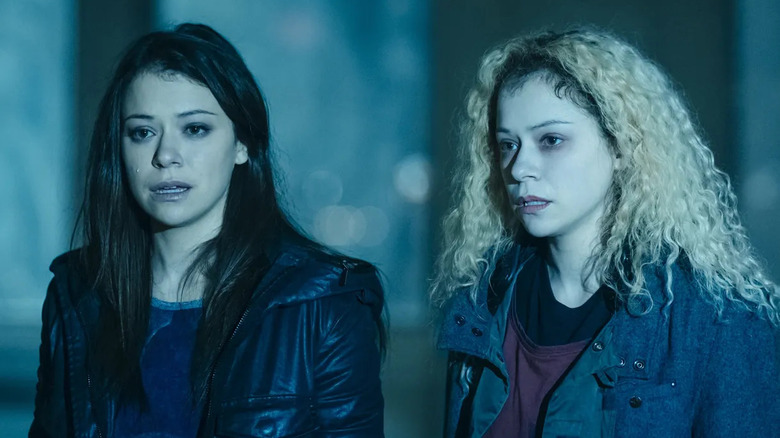
Before we even start to talk about "Orphan Black" we need to light a candle at the altar worshipping Tatiana Maslany. Without her, none of this works. Maslany plays Sarah Manning, a young woman who learns (to her considerable surprise) that she is a clone, and has dozens of doppelgangers wandering the planet, many of whom are being hunted down by a mysterious organization. So, Maslany is playing not just Sarah, but every single one of her clone sisters, each of whom has their own distinct personality (and often regional accent).
Maslany's performance is so believable that throughout the run of "Orphan Black" it's absurdly easy to forget that she's just one person playing all of these different characters, work that rightfully earned her a Primetime Emmy in 2016. Putting aside Maslany for a moment, the show itself is creatively ambitious, evolving and raising the stakes over the course of five seasons and developing a powerful connection between the clones that examines the complexity of human identity.
Star Trek: The Next Generation
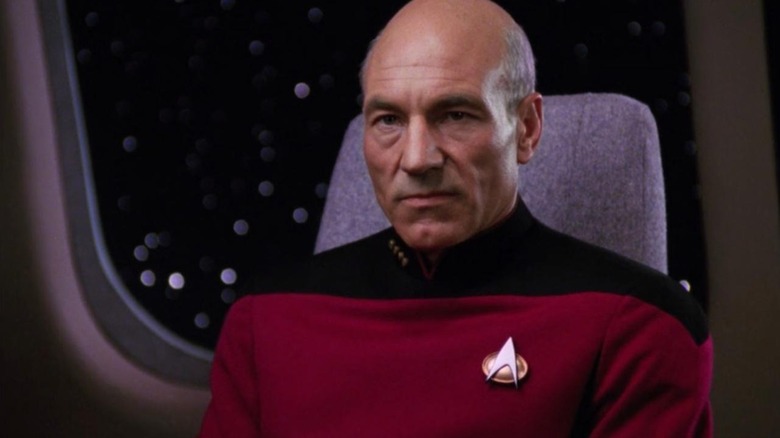
It's a testament to the success of "Star Trek: The Next Generation" that the question "Kirk or Picard?" has become almost as mainstream as "paper or plastic?" Created in the 1980s by Gene Roddenberry as the first live-action spinoff of the original "Star Trek" series, "Star Trek: The Next Generation" would see the USS Enterprise staffed by a new crew, with the incomparable Patrick Stewart as Jean-Luc Picard at the helm.
His performance is so defining for the franchise that "Star Trek: The Next Generation" was able to do the seemingly impossible: make space in the hearts and minds of the famously loyal Star Trek fans for a new group of heroes. Stewart, alongside Jonathan Frakes as William Riker and Brent Spiner as Data, may not supplant the original trio of Kirk, Spock, and Bones, but they go a long way towards making "Star Trek: The Next Generation" just as beloved as its predecessor. It ultimately ran for seven seasons, winning 17 Emmy Awards during its tenure.
Eureka
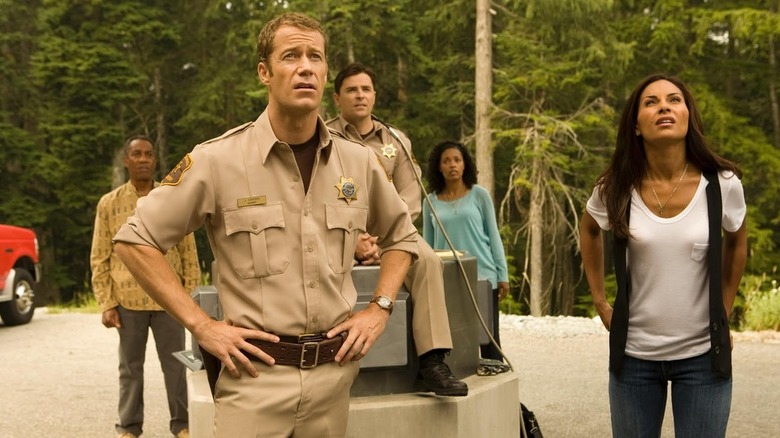
Science fiction can sometimes get a reputation for taking itself too seriously. Writers can get so caught up in world-building that it's easy for them not to realize that what they've created is pretty dense and dry. But hey, some science fiction fans really go in for that! Still, it's a refreshing surprise to get a sci-fi series that leans into the quirkier side of the genre. "Eureka" is a comedy that initially aired on the Sci-Fi Channel, featuring Colin Ferguson as a U.S. Marshall who moves to a very strange town called Eureka, when he is hired as their new sheriff.
One thing they probably neglected to mention during the interview process is that Eureka is a town populated almost entirely by geniuses who work at a top-secret, Department of Defense-affiliated corporation called Global Dynamics. Each episode of "Eureka" generally involves some piece of new future tech going comically awry, with the town requiring assistance from their objectively less intelligent but street-smart man of the law. It is delightfully silly and charming. Sometimes, that's enough.
Humans
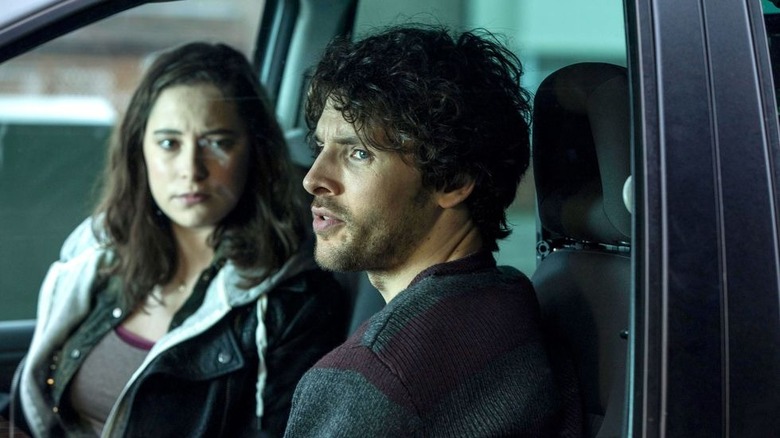
One thing that we're probably going to need to address in the next 50 years or so are the massive ethical implications of the creation of artificial life. Luckily, we have "Humans" as a template for how that conversation might go. The British series exists in a world very similar to ours, except that science has perfected robotic technology to the extent that people are able to create machines called "Synths" that are nearly indistinguishable from humans, essentially establishing a class of shiny robot slaves.
And maybe this is acceptable under the assumption that they, being robots, lack personhood. But the issue becomes considerably more complex when it becomes clear that some of the Synths have evolved to the point where they are capable of independent thought and personal agency. A battle for civil liberties follows, with Leo (Colin Morgan) serving as a unique bridge between humans and Synths, since he possesses a partially artificial brain after a childhood accident. "Humans" is clever and nuanced, examining the nature of humanity itself.
Star Trek
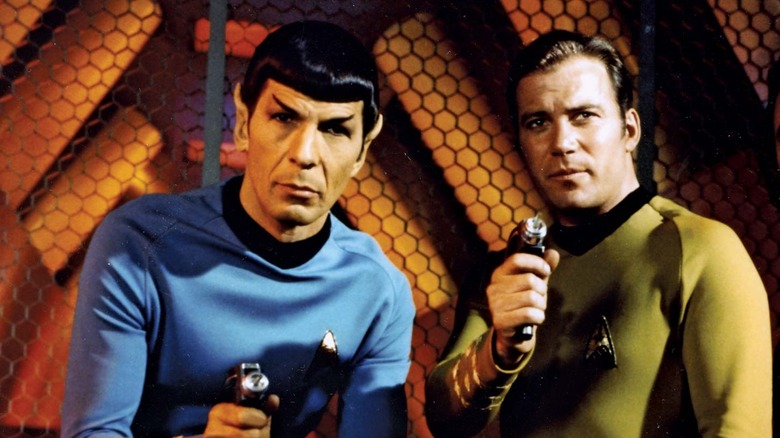
What is there to say about "Star Trek" that hasn't already been said? Created by Gene Roddenberry in 1966, the science fiction series following the exploits of Captain James Tiberius Kirk (William Shatner) and Science Officer Spock (Leonard Nimoy) is probably one of the best-known media properties in entertainment history. Aboard the USS Enterprise, a crew of experts travels throughout the galaxy on various missions that will take them to a host of different planets, all with their own unique dilemmas (and, of course, beautiful space women for Kirk to woo).
Easily dismissed as light, frothy entertainment, "Star Trek" nonetheless stood at the forefront of television's ability to address social issues, having come out just a few short years after the groundbreaking "The Twilight Zone." It aired episodes that were not particularly subtle criticisms of the Vietnam War, the Cold War, and many other hot button topics of the day. Blending adventure and a sense of advocacy is the real triumph beneath the surface-level hijinks of "Star Trek."
The Hitchhiker's Guide To The Galaxy
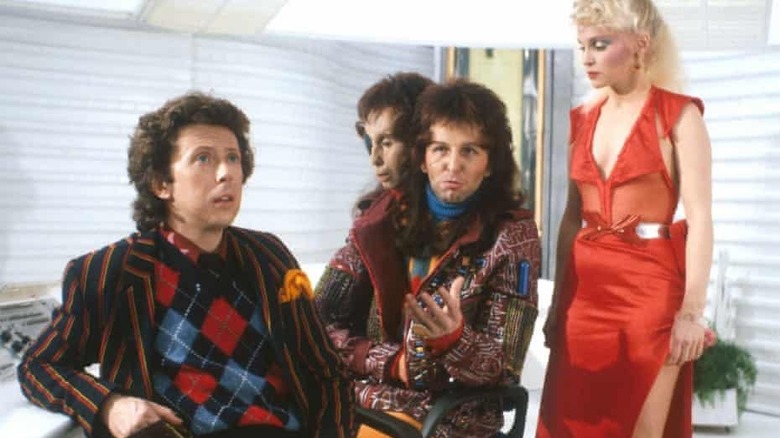
Look, "The Hitchhiker's Guide to the Galaxy" miniseries may not have had the cultural staying power of some other science fiction properties. Although the book series from Douglas Adams remains tremendously popular among sci-fi fans, some would argue that the 1981 version that was made for the BBC, with its shoddy special effects and dated aesthetic, doesn't quite live up to the genius of the original story.
But they're all wrong. "The Hitchhiker's Guide to the Galaxy" is witty and irreverent and absolutely perfect.
It all begins, for Arthur Dent (Simon Jones), when on an otherwise inauspicious day he is unceremoniously rescued from Earth mere seconds before the planet is obliterated by intergalactic bureaucrats to make room for an interspace bypass. "The Hitchhiker's Guide to the Galaxy" then details the adventures of the now critically endangered Earthman as he is flung around the universe, entirely out of his depth. The show's greatest achievement is in its ability to maintain so much of Adams' absurdist sense of humor, with the voiceover narration allowing his original text to shine through.
Read this next: The 25 Best Movie Robots Of All Time
The post The 14 Best Sci-Fi Shows on Amazon Prime appeared first on /Film.
